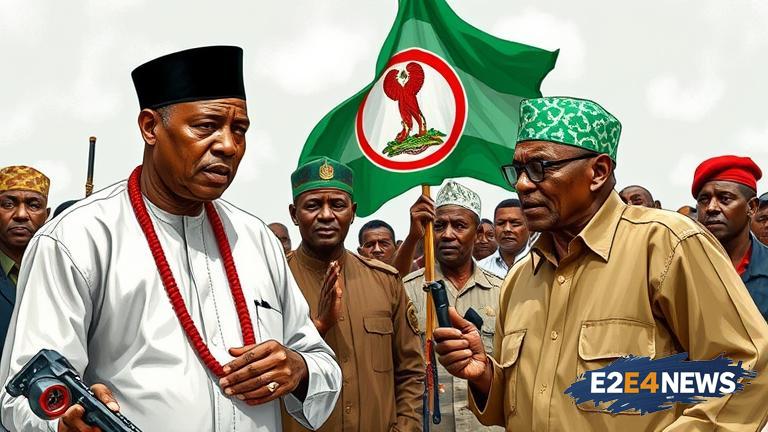The Labour Party in Nigeria has made a scathing accusation against the ruling All Progressives Congress (APC), alleging that the party has normalized insecurity and hardship in the country. This accusation has sparked a heated debate among Nigerians, with many expressing their discontent and frustration with the current state of affairs. The Labour Party’s criticism comes on the heels of a series of violent attacks and kidnappings that have plagued the country in recent months. The party’s leadership has argued that the APC’s inability to effectively address these security challenges has created an environment in which insecurity and hardship have become the norm. Furthermore, the Labour Party has accused the APC of being more concerned with maintaining its grip on power than with addressing the pressing needs of the Nigerian people. The party’s spokesperson has stated that the APC’s policies have led to a significant increase in poverty, unemployment, and inequality, which have in turn contributed to the rising levels of insecurity and social unrest. The Labour Party has also criticized the APC’s handling of the economy, arguing that the party’s policies have led to a decline in economic growth and a rise in inflation. The party has called on the APC to take immediate action to address the security challenges facing the country and to implement policies that will stimulate economic growth and reduce poverty. However, the APC has dismissed the Labour Party’s accusations, arguing that the party is simply trying to score cheap political points. The APC has argued that it has made significant progress in addressing the security challenges facing the country and that its economic policies have led to a rise in foreign investment and a decline in unemployment. Despite the APC’s denials, many Nigerians remain skeptical about the party’s ability to effectively address the country’s security and economic challenges. The Labour Party’s accusations have resonated with many citizens, who feel that the APC has failed to deliver on its promises and has instead presided over a period of significant decline and instability. The debate between the Labour Party and the APC has highlighted the deep-seated divisions and tensions that exist within Nigerian politics. The country’s political landscape is characterized by a lack of trust and a sense of disillusionment among citizens, who feel that their leaders are more concerned with maintaining their power and privilege than with serving the public interest. The Labour Party’s accusations have also sparked a wider debate about the role of politics in perpetuating insecurity and hardship in Nigeria. Many analysts have argued that the country’s political system is flawed and that it has created an environment in which corruption and impunity thrive. The Labour Party’s criticism of the APC has also highlighted the need for greater accountability and transparency in government. The party has argued that the APC’s lack of accountability and transparency has contributed to the rise in corruption and insecurity, and that a more transparent and accountable government is needed to address these challenges. In conclusion, the Labour Party’s accusation that the APC has normalized insecurity and hardship in Nigeria has sparked a heated debate and highlighted the need for greater accountability and transparency in government. The party’s criticism has resonated with many Nigerians, who feel that the APC has failed to deliver on its promises and has instead presided over a period of significant decline and instability. As the country prepares for future elections, the debate between the Labour Party and the APC is likely to continue, with many citizens calling for greater accountability and transparency from their leaders.
